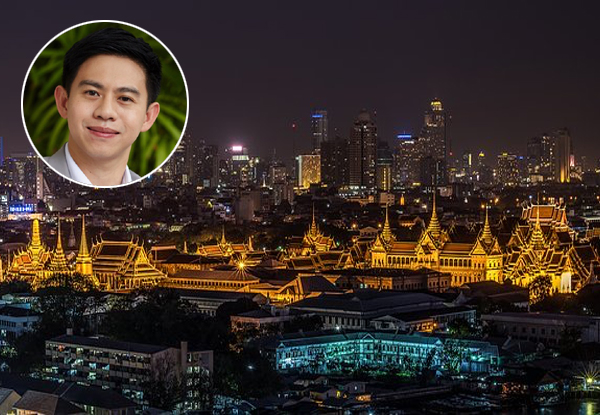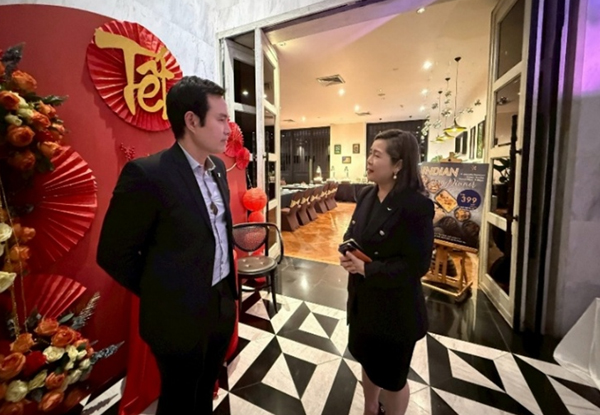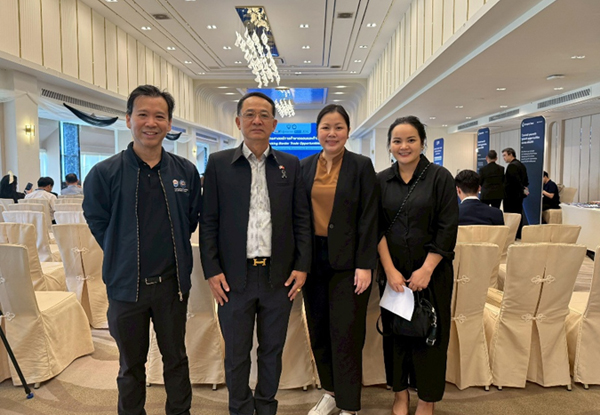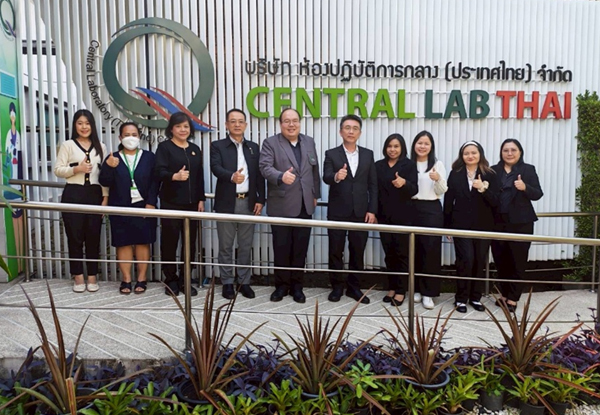บทความ ดร.อิสระ เสรีวัฒนวุฒิ ให้สัมภาษณ์สำนักข่าวชั้นนำของอิตาลี เรื่อง “กรณีศึกษาประเทศไทย: วิถีแก้วิกฤตที่น่าติดตามแห่งเอเชีย”
“THE THAILAND CASE”: HERE’S HOW THE NEW ASIAN POWER FACED PANDEMIA
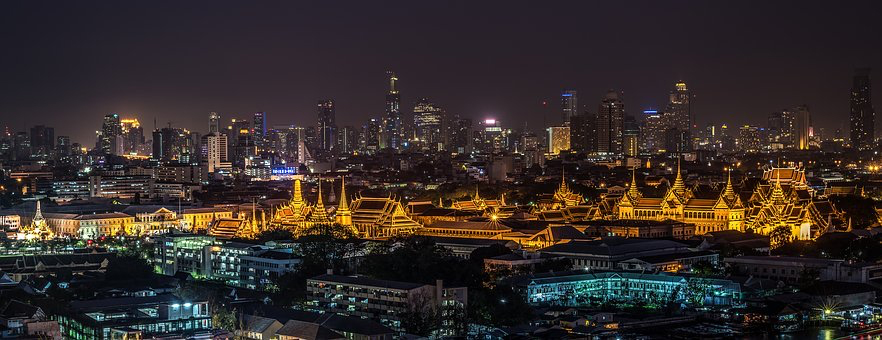
Interview Issara Sereewatthanawut (Deputy Secretary General of the Thai Democratic Party)
by Luigi Marcadella, European Policy Analyst
Thailand is one of the Asian nations least affected by the effects of the Covid-19 pandemic. As of May 18, it has recorded only 3 new cases, 56 total deaths out of a total of just over 3,000 infected. Numbers that are truly different from those that unfortunately overwhelmed Europe and the United States: the Kingdom of Thailand therefore confirms, also from the point of view of the health organization, that it is the emerging regional power of the Asian continent. “Il Nodo di Gordio” wanted to analyze “the Thailand case” closely through the words of Issara Sereewatthanawut, exponent of the new Thai ruling class, member of the House of Representatives and Deputy Secretary General of the Democratic Party.
Seen from Europe, Thailand has proven to be one of the states in the Asian continent best prepared to face the health crisis caused by COVID-19. Once again, your country has confirmed the image of great efficiency and public organization.
I would say that Thailand has three most important factors that play major roles in encountering the COVID-19 quite successfully. First is the team of medical personnel, especially those who contributed to the policy and decision-making processes. Second are the public and private organizations. Although this outbreak is unexpected and they were not certain which directions of reaction and coordination are correct, the civil servants and private sectors were trying their best to facilitate and help people following the measures issued by the government. Beyond what they did according to their duties and responsibilities, most of them overly worked with their heads, hearts and hands to take part in this crisis management. Projects, one after another, were initiated to provide masks and food to the people, to supply medical covers and appliances to the hospitals, to ease out both retail and corporate loans, etc. I myself have initiated “the MiniMask Project” to distribute more than a hundred thousand of high-quality yet suitable-sized masks for children. Third is the Thai people who not only strictly follow the measures; maintaining social distancing and monitoring their symptoms, but also helped each other including the foreigners who still resided in Thailand, sharing whatever they had to comfort the ones who needed. This is the unique Thai-style compassion that we are very proud of.
What were the Thai government’s measures to combat the virus? In Europe and worldwide, nations have operated very differently from each other. In some cases they have radically changed their strategy during the crisis.
The Thai government has issued and extended three key measures for restraining the pandemic of Coronavirus Diseases 2019. These are the lockdown, inbound and outbound flight bans, and several types of stimulus economic measures such as cash handouts to those who are temporary employees, contract employees and self-employed individuals who are not covered by the social security system, and requested the financial sector for the easing out almost all types of retail and corporate loan terms so that people could be partially relieved from the economic burden, resulting from the COVID-19. I think that the mutually-agreed political principle is to give priority to the well-being, of which I refer to the health and safety, of our people first and to employ every possible measure to balance between the economy and health impacts. Through all types of media, everyone realized the capacity limit of our medical facilities and without the vaccines in place, these measures would be relatively the best way out at the moment, given the examples of cases experienced in foreign countries.
Has Thai politics, majority and opposition, split or been compact in supporting the government?
With the Thai parliamentary system and mechanism, we have 35 standing committees whose half of the Chairpersons are from the majority parties and another half of those are from the opposition parties. The members of each committee are the combination of both the majority and opposition. Each and every of these committees performed their dimensions of duties to support the national policies in fighting COVID-19. This has demonstrated the coordinated work of both sides. In addition, nationwide, there are 350 constituencies whose elected Members of Parliament in conjunction with another 150 Party-listed MPs have monitored the situation, taken care of their local people and worked with the public entities closely to ensure the measures taken to contain the virus as well as to provide the necessities to the people. All in all, what we noticed is that everyone, no matter side they are on, has been complying to the policies in the same direction to enable the public health recommendations in order to fight with the COVID-19 and minimize the losses.
How many economic and financial resources will your country allocate to face the crisis?
The COVID-19 pandemic has brought economic and social disruption to Thailand and many other countries in the world. It was an inevitable setback to both the public and private sectors. However, the strict lockdown measure was considered the best possible way out, compared to the alternative of business-as-usual damages that could cost Thailand a lot more and would take significant time and resource to recover, both physically and mentally. Beside the national budget of USD 1.4 billion used and reserved to fight COVID-19 through the Ministry of Public Health, public hospitals and other relevant entities, the government also asked for the cooperation from the Thai business tycoons for consultancy, both for the fighting of COVID-19 and the reviving of the economy. Most of them already announced their plans and presented their readiness to take their parts in assisting the country.
Thailand has a health system that can also boast international excellence. Will the pandemic encourage further investment, public and private, in the health and research sector?
Luckily, Thailand’s health system has long been established and developed. King Rama V of Thailand was the one with his genuine vision in this matter. He helped established rules and regulations for the public sanitary utility. His son, who was later the father of King Rama IX, HRH Prince Mahidol of Songkla is regarded as the “Father of Modern Medicine and Public Health of Thailand” due to his initiative and dedication in these fields. One of his highly-respected philosophies that shows both wisdom and moral value is “Let consideration of personal gain take second place for the overall benefit of mankind”. Realizing the importance of the health system, many medical projects were created and supported by King Rama IX. A few years ago, Thailand has already identified “Health Tourism” as one of the ten S-curve industries to target for investment under a new digital Internet of Things (IoT) plan that will be vital to the country’s future economy. Many researches and promotion strategies in this area have been conducted, as part of the foundation to strengthen both the education and commerce, to gear up the health tourism industry. With the recent COVID-19 pandemic, many research funds, public and private will be contributed to ensure the prevention and protection of the outbreak.
In Europe and the rest of the world, governments are moving to implement extraordinary monetary and fiscal measures to manage the devastating effects caused by the lockdown of the economy. In Thailand, what are you planning to support and revive the economy, companies and internal demand?
Thailand are preparing to gradually step forward and regain our economy momentum. The government issues an executive decree to borrow USD 31 billion to boost the economy; USD 19 billion to ease people’s plight for 6 months, to help farmers, and support public health services, and USD 12 billion plan to strengthen the community economy, and boost local infrastructure development. In addition, another executive decree to authorise the Bank of Thailand (BoT) to issue soft loans to help businesses, particularly SMEs. In my capacity, as a standing committee member on finance, monetary, financial institution and capital market, I proposed a 6-month delay for employees to contribute to the social secuity fund in which the government enacted following this remarks. Currently, the government already relaxed the lockdown restrictions, slowly allow most temporarily-closed businesses to reopen so that people can resume their work and generate income.
In my opinion, the restrictions of COVID-19 have stimulated the innovations as well as new channels of distribution for businesses to spur the internal demand. We have seen a lot of changes and improvements in products and services. In addition, there are several packages and programs that the commercial banks and financial institutions have offered in order to help businesses survive. Basically, to drive Thailand economy as a whole, I think all of the companies need to maintain their liquidity, extend their loan repayment terms, and continue with the employment.
What are the forecasts for the main indicators of the Thai economy for 2020 and 2021?
Given that Thailand economy has relied heavily on tourism and trade, and that the COVID-19 pandemic has ceased business activities in major sectors, including tourism and retails, in order to curb the COVID-19 spread, the National Economic and Social Development Council (NESDC) announced its forecast for 2020 GDP to a contraction of 5.0 to 6.0 per cent from growth of 1.5 per cent to 2.5 per cent projected in February. However, with the plans to boost the economy, the result of the economy recovery in Thailand is expected during the third and fourth quarters this year. So far, with the recent relaxation of the restrictions, most of the businesses have already resumed operations. Thus, hopefully our GDP growth will be positive for 2021. Last month, the International Monetary Fund (IMF) has just provided the following projections for GDP growth in 2021 among ASEAN countries; a combined growth of ASEAN-5 countries at 7.8 per cent, Thailand’s at 6.1 per cent, Viet Nam’s at 7 per cent, the Philippines’ at 7.6 per cent, Indonesia’s at 8.2 per cent, and Malaysia’s at 9 per cent.
Many European and international companies are redefining their production chains: Thailand, for its institutional stability, for constant economic growth, represents, as many businessmen say, one of the most attractive states in the Asian context. Are you planning specific projects to attract foreign direct investment in the coming months?
Thailand has been an attractive country for Foreign Direct Investment (FDI) for decades, and FDI is actually an important element for Thailand’s economic and social development. In 2018, FDI flows increased to USD 10.49 billion (the UNCTAD World Investment Report 2019), while FDI flows in the first three quarters of 2019 increased by 69 per cent from the same period in 2018 to USD 6.7 billion (Thailand’s Board of Investment). Although manufacturing, financial, and insurance potentials attract nearly 70 per cent of all FDI inflows, investments in real estate, commerce and information and communication have shown the upward trend in the FDI. For a few years now that the Board of Investment has structured quite impressive incentive packages in advanced technologies, innovative activities and research & development through the Investment Promotion Act, and the Eastern Economic Corridor (EEC) Act. With the COVID-19 crisis, it becomes clear that food supply is very vital and the Thai economy’s strengths lie primarily in agriculture. We have such great food and good crops. However, opportunities for our produces to share with the rest of the world still require further investment in technology as well as innovative development. I strongly believe that the government would be very much interested in drawing foreign investors who are keen to place their food manufacturing bases in Thailand by offering the attractive incentives in this matter.
You are a politician who can boast remarkable relationships with international institutions, even with the WHO. What idea did you get of how the emergency in Europe?
We need to admit that the COVID-19 brought unprecedented disruptions to the world. Thus, there is no such thing like one-size-fits-all that can determine exact ways to best manage it. Each country has similar and different situations and constraints, compared to others. Without simple solutions for such complicated situations, I think most of the crisis needs to be handled based on a set of precise and transparent information, resource, and a prudent but timely analysis of cause and effect for decision-making. In this COVID-19 case, an information necessary must be gathered, edited to be in an easy-to-understand version and distributed to the right target groups. An example for this is “the KnowCovid Project” I collaborated with WHO and Kaihuaror Cartoon to set a correct understanding of how to prevent the outbreak in a comic style. Because of the limitation in concurrent medical care, restrictions or lockdown certain areas need to be plotted carefully and with the alternate options for people to live and to work. The estimated cost of damages in each of various “What-If” of situational analysis did help very much in the country’s executive decision. Flexibility and agility to make a daily change according to the circumstances are also proved to be among key success factors for fighting COVID-19.
Finally, from the point of view of international relations: in your opinion, are the economic and geopolitical effects of this pandemic able to modify the political relations between the regional powers of the Asian continent?
It maybe too early to tell at this point but I think what is happening now is quite contradictory. COVID-19 has led each country to focus more internally rather than internationally. However, conquering this virus requires the international cooperation in terms of medical care and sharing the insights. When the world has counted more and more on the affordable technology and its advancements, the global market becomes very well connected. With the effect from COVID-19, the economy in the powerful countries seem to be hit harder than the small ones and may lessen their roles as major directors of the world’s economy and geopolitics. This may turn to be opportunities for ASEAN to strengthen our relationship and shift our cooperation to another level that can internally sustain the economy within the group and less dependent on others.
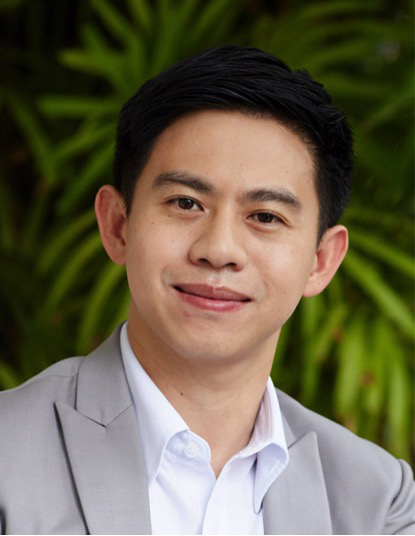
Honorable Dr.Issara Sereewatthanawut is currently a Member of Parliament, House of Representatives of Thailand and the Spokesperson of the Standing Committee on Finance, Monetary, Financial Institution and Capital Market. He represents Thailand as a Bureau Member in the Inter-Parliamentary Union’s Committee on Sustainable Development, Finance and Trade and he was elected as Deputy Secretary-General of the Democrat Party. Previously, he was an Associate Justice of the Central Intellectual Property and International Trade Court of Thailand. Dr. Sereewatthanawut also sits on the Board of Directors for automotive companies, located in Thailand, Europe and China. Academically, he teaches at both public and private universities in Thailand. Dr. Sereewatthanawut earned his Ph.D. in Chemical Engineering at the Imperial College London. He also received post-graduate training at Harvard Law School and the University of Pennsylvania Law School.
Source : nododigordio.org 21 May 2020

